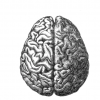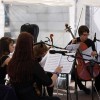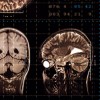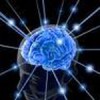Posts tagged brain

A Step Towards Understanding Alzheimer’s
Mar 10th
Alzheimer’s disease is a debilitating disease where neurons in the brain die. These neurons are called basal forebrain cholinergic neurons and their job is to help the hippocampus retrieve memories in the brain. Alzheimer’s disease patients do not have the ability to retrieve memories. It’s not that those memories are lost, they just cannot be retrieved. In early Alzheimer’s, these special neurons die. Since there are so few to be found within the brain, their death can quickly become devastating.
Northwestern Medicine researchers have made a major discovery that can aid in understanding and treating Alzheimer’s. These researchers have taken human More >

Fighting Addiction
Aug 13th
Having an addiction can be devastating, to those that have it and to those that are exposed to it. The addiction can be to a variety of different things such as alcohol, drugs, gambling, internet shopping, video games or even work. But what causes these addictions? Why do some people have the ability to enjoy these things, yet leave them, while others seem to never be able to stop?
Well, it could be your family and it could be your environment. Studies have shown that addictions run in families. In fact, if a parent has an addiction, the child is 4 More >

What’s in a Dream?
Jun 3rd
What did you dream of last night? Do you remember? You probably had several dreams last night. But what are dreams? Why do we have them? What is their purpose?
When your body enters sleep, your brain undergoes several sleep cycles, four to fives times a night. Each cycle has its own purpose. The cycles range from drowsiness and light sleep to deep sleep. After deep sleep, the body (or more technically the brain) will enter a stage called Rapid Eye Movement, abbreviated REM sleep. It is during this REM stage where many of our dreams happen.
Why do we dream? Many More >

Winter Move Over, Spring is Here!
Apr 20th
Seasonal Affective Disorder (SAD) or “Winter Blues”
Spring arrived on March 20th and it was hard to ignore. It was a hot day in Central Park with fellow New Yorkers rushing out to sit in the sun, play ball, or ride their bikes. In my hometown people rushed to the Bluff just to sit in the sand and stare off into the water of Long Island Sound. There were some die hard jet skiers that took the opportunity to get their jet skies into the water (even though the water was an icy 40 degrees). People are craving to be outside; to shake More >

Adjusting your moral compass
Apr 6th
It can be kind of frightening to think about it, but there really is such a thing as mind control.
Now, we are not talking Hypnotoad or Professor-X style mind control (not yet at least) but a simple experiment that demonstrates how mind and brain interact and can be manipulated.
In the study conducted by Rebecca Saxe of MIT (http://www.pnas.org/content/early/2010/03/11/0914826107.full.pdf+html)
used a technique call transcranial magnetic stimulation (TMS) to disrupt a region of the brain known as the right temporo-parietal junction (TPJ). As every child knows, one of the best ways to figure out how something works is to take it apart and More >

Music, Education, Neuroscience
Feb 22nd
At the recent annual meeting of the American Association for the Advancement of Science, the topics of music-education and neuroscience were highlighted by Nina Kraus, Professor of Neurobiology, Physiology and Communication Sciences at Northwestern University. In a study to be published in the April edition of Nature Neuroscience, his group demonstrated that children with some musical training were better able to distinguish sounds (in this case tonal variants of mandarin Chinese words) then their amusical peers. Specifically this study looked at distinguishing these sounds from a complicated sound background.
While this is a very focused study, it is clear from a More >

Name that star!
Dec 14th
A good friend of mine recently gave birth to a beautiful baby girl. In searching for an appropriate gift, I came across a book by Michael Sherrod and Matthew Rayback called Bad Baby Names. The book trawls through 40 years of U.S. census data to catalog some of the most disastrous names bestowed upon American children. Examples include Acne Fountain, Emma Royd, Fanny Pack, Nice Carr, and Post Office.
Many hours of belly laughs later and I began to feel rather guilty. How terrible it must be to labor through life as Super Mann. How the schoolyard must cackle when Garage More >

Can We Diagnose PTSD with Brain Scans?
Apr 18th
Duke University’s Rajendra Morey was in the news this week following a presentation at the World Psychiatric Association Congress in Italy. Dr Morey’s group recently published a paper equating symptoms of post posttraumatic stress disorder (PTSD) with “markedly different neural activity”. Dr. Morey raised the possibility of using brain scans to diagnose PTSD, thereby catapulting herself into the science pages of Forbes, Reuters et al. She joins a lengthy list of researchers that have whetted our appetite with tantalizing suggestions about the predictive power of neuroimaging. Sadly, the list of those who have followed through on this promise is not quite so More >

